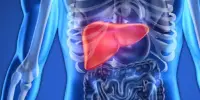Insomnia can cause disruptions in the body’s stress response system and lead to elevated levels of stress hormones, which can contribute to the development of cardiovascular disease. In addition, lack of sleep can also lead to other risk factors for heart disease, such as obesity, high blood pressure, and diabetes. Therefore, it is important for people who experience chronic insomnia to seek treatment to improve their sleep quality and reduce their risk of developing cardiovascular disease.
According to new research presented at the American College of Cardiology’s Annual Scientific Session Together With the World Congress of Cardiology, people who suffer from insomnia were 69% more likely to have a heart attack than those who did not have the sleep disorder over an average nine-year follow-up. Furthermore, when using sleep duration as an objective measure of insomnia, researchers discovered that people who slept for five or fewer hours per night had the highest risk of having a heart attack. People who had both diabetes and insomnia were twice as likely to have a heart attack.
“Insomnia is the most common sleep disorder, but in many ways it’s more of a lifestyle choice than an illness. We simply do not place as much emphasis on sleep as we should” Yomna E. Dean, a medical student at Alexandria University in Alexandria, Egypt, and the study’s author, agreed. “Our study found that people with insomnia, regardless of age, are more likely to have a heart attack, and heart attacks occur more frequently in women with insomnia.”
Our study found that people with insomnia, regardless of age, are more likely to have a heart attack, and heart attacks occur more frequently in women with insomnia.
Yomna E. Dean
Dean and her colleagues hope that the current study will raise awareness of the role that sleep disorders may play in heart health. Insomnia can manifest as difficulty falling asleep, staying asleep, or getting enough quality sleep. Insomnia is becoming more common, affecting 10% to 30% of American adults, with women being more affected than men. While previous research has linked insomnia to cardiovascular and metabolic diseases, this is the largest study to date.
“Insomnia should be considered a risk factor for developing a heart attack based on our pooled data, and we need to do a better job of educating people about how dangerous [lack of good sleep] can be,” Dean said.
For their analysis, the researchers conducted a systematic review of the literature that yielded 1,226 studies – of these, nine studies originating from the U.S., United Kingdom, Norway, Germany, Taiwan and China were selected for inclusion. All told, data for 1,184,256 adults (43% of whom were women) were assessed.

The average age was 52 years, and 13% (153,881) had insomnia, which was defined by ICD diagnostic codes or the presence of any of the following three symptoms: difficulty falling asleep, difficulty staying asleep, or waking early and being unable to return to sleep. People suffering from obstructive sleep apnea were excluded. The vast majority of patients (96%) had no prior history of a heart attack. Heart attacks occurred in 2,406 of the insomniatics and 12,398 of the non-insomniatics.
After controlling for other factors that could increase the likelihood of a heart attack, such as age, gender, comorbidities, and smoking, there was a statistically significant association between insomnia and having a heart attack based on the pooled data. This link between insomnia and heart attack persisted across all patient subgroups, including younger and older age groups (<65 and >65), follow-up duration (more or less than five years), male and female sex, and common comorbidities (diabetes, high blood pressure or cholesterol).
“Not surprisingly, people with insomnia who also had high blood pressure, cholesterol or diabetes had an even higher risk of having a heart attack than those who didn’t,” Dean said. “People with diabetes who also have insomnia had a twofold likelihood of having a heart attack.”
Furthermore, people who reported five or fewer hours of sleep per night were 1.38 and 1.56 times more likely to have a heart attack than those who slept six to eight hours per night, respectively. According to Dean, there was no difference in the risk of heart attack between those who got five or less hours of sleep per night and those who got nine or more hours of sleep per night, which supports previous research that found that getting too little or too much sleep can be harmful to heart health. Dean and her colleagues discovered that patients who slept for six hours had a lower risk of having a heart attack than those who slept for nine hours.
In a separate study, the researchers sought to determine whether specific insomnia symptoms are linked to an increased risk of heart attack. Trouble initiating and maintaining sleep – that is, difficulty falling or staying asleep – was also linked to a 13% increased risk of heart attack when compared to people who did not have these symptoms.
Non-restorative sleep and daytime dysfunction, on the other hand, were not linked to heart attacks, implying that people who complain of feeling tired when they wake up but don’t have a lack of sleep aren’t at a higher risk of having a heart attack, according to Dean.
According to the findings, Dean recommends that people prioritize sleep and get seven to eight hours of quality sleep per night. “Maintain good sleep hygiene by keeping the room dark, quiet, and cool, and by putting away electronics. Do something relaxing to unwind, and if you’ve tried everything and still can’t sleep or are sleeping less than five hours, consult your doctor.”
The study had some limitations, including the fact that the majority of the studies reviewed relied on participants self-reporting sleep behaviors via questionnaires, despite the fact that heart attacks were validated by medical reports.















